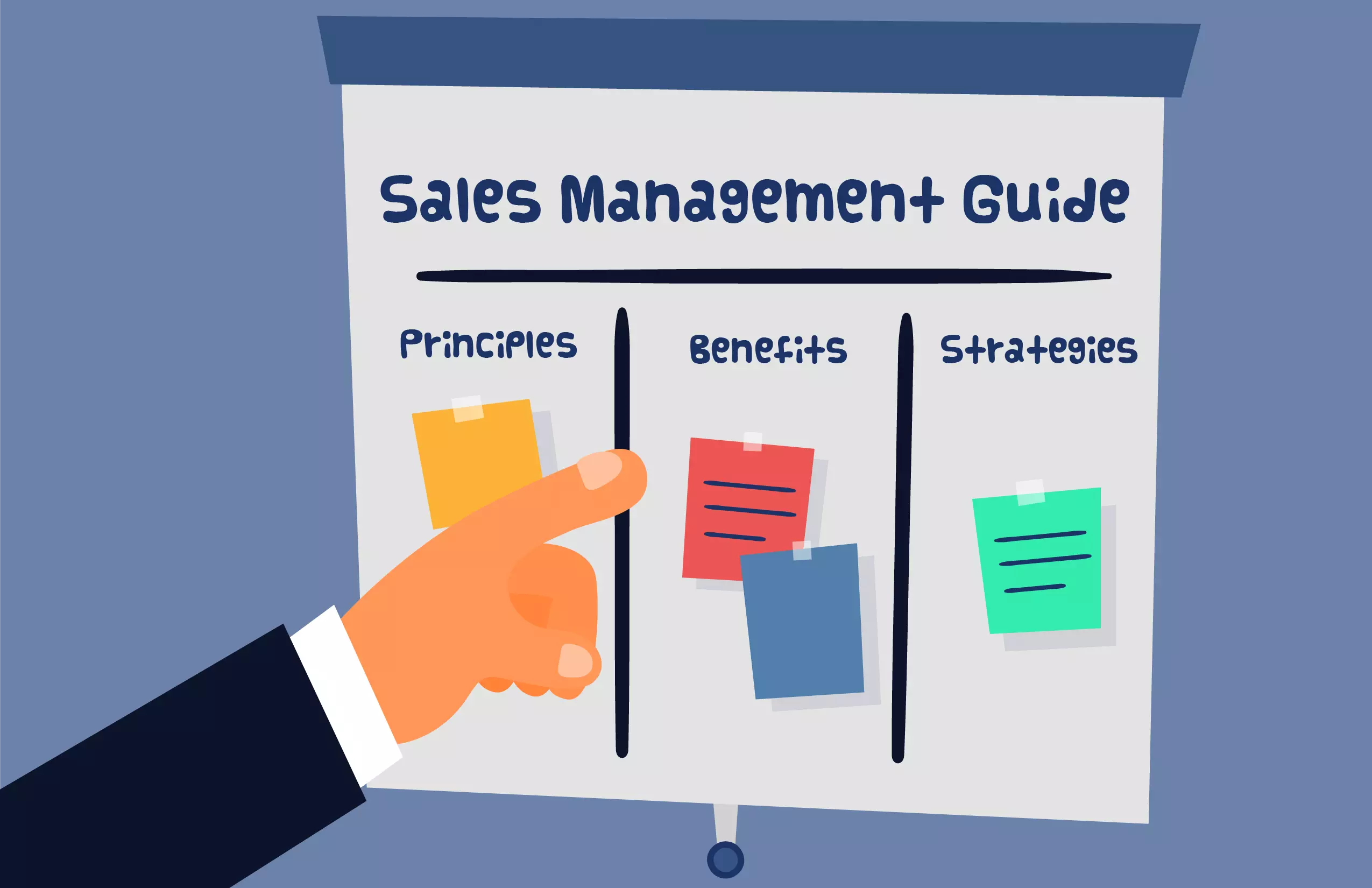
Types of Sales Relationship Management and Their Importance in Selling
Table of Contents
The variety of sales strategies and tools available to sales teams to help them win new clients and keep existing ones has increased as the field of sales has transformed and progressed.
Numerous traditional sales techniques aren’t always effective, and implementing quite so many new ones might sometimes cause difficulties. For salespeople, particularly in B2B, the environment is challenging. However, there is also a variety of information and methods available that can assist sales teams in succeeding and achieving their sales targets.
Despite the fact that the internet and the countless sales experts offering conflicting advice make it simple to become overloaded with information, there is one sales approach that each and every salesperson should always master: sales relationship management.
Sales and relationship management do matter in a B2B business. To succeed as a salesperson in the long run, you must do more than just offer products.
Jim Cathart states in his book Relationship Selling that it is “Relationship selling is a form of selling, not merely a type of relationship. The purpose of it is to help other people at a profit to you. When you are truly helping, you deserve to be well compensated for your product or service.”
What Is Sales Relationship Management?
Building relationships with clients and potential customers is a critical component of the sales relationship management strategy. The salespeople emphasize their relationship with customers rather than just the pricing and other facts to sell a product or service.
When a salesperson builds a personal rapport with a customer, that customer is more likely to develop loyalty toward a product or service. Because they feel appreciated by the business, familiarity helps keep loyal customers and attract new ones.
Between a salesperson and their client, a sales relationship consists of both personal and professional ties. Over time, a strong sales relationship develops between them. Socializing via common interests or funny personal memories creates a natural connection, but lasting professional relationships are created by a track record of delivering reliable products to customers. Sales and relationship management make a salesperson’s client base more strong and aid to keep their sales performance standards high.
Types Of Sales Relationship Management In Business
Within a given customer segment, businesses might have various kinds of customer sales relationships. Depending on the objectives, any organization can develop a specific sales relationship with certain customer segments.
Transactional Sales Relationship Management
This indicates that there is no genuine sales relationship between the business and the customer. Beyond that transaction, the customer and the organization have no more relationship. In transactional sales relationship management, the customer has no special concerns for the salesperson or company.
A transactional buyer is not likely to be a committed customer to a salesperson. This means that it is frequently ideal for the salesperson to concentrate on immediate results, like a transaction that is about to happen, rather than making great offers and discounts in the hopes of gaining more sales deals in the future.
Functional Sales Relationship Management
Functional sales relationship management is short-term, continuing relationships that arise when a customer keeps buying from a seller out of habit as long as their requirements are satisfied. If the customer’s wants are suitably addressed in this sales relationship, they won’t consider other options.
Although it is not impervious to other factors, functional sales relationship management can be an important source of recurring sales. Since the customer and the salesperson do not currently have an established personal or strong professional relationship, if the client discovers a much more suitable choice, they are likely to shift their interest.
Affiliative Sales Relationship Management
When a buyer requires a salesperson’s knowledge in a certain domain, affiliate sales relationship management is established. As the customer wants to take the best purchase decision and believes the salesperson will offer the necessary information for an intelligent choice, this is a closer sales relationship based on trust.
The client is less inclined to search for or seek alternative prospects when they have an affiliative sales relationship. Because they value your dependability and the quality of your product, customers who have affiliative sales relationship management may be willing to pay a higher price. This keeps business from losing sales to an opponent who undercuts you.
Strategic Sales Relationship Management
When both the customer and the salesperson invest their time in developing and solidifying the sales relationship, a strategic partnership is created. Creating strategic sales relationship management is a highly successful sales expansion approach. In a strategic partnership, the salesperson and the client collaborate in a way that is advantageous to both sides.
It’s not necessary to share a close personal bond with a client with whom you have a business partnership. Strong personal connections can assist in further strengthening the sales and relationship management and improve how you work with the client.
Personal Assistance Sales Relationship Management
When a customer needs assistance during the sale or after they’ve made their purchase, they can get in touch with a personal sales representative. This could take place in person at the point of sale, over the phone, by email, or through other channels.
A sales representative is assigned specifically to a client as part of this sales relationship management. It stands for the closest and most intense kind of sales relationship and typically takes a long time to build. In other companies, prominent sales managers who keep in touch with significant clients use a similar sort of sales relationship management.
Importance Of Sales Relationship Management In Selling
Utilizing sales relationship management strategies is one approach to differentiate your sales pitch from those of your competitors. Adopting a relationship-based sales strategy can increase your sales success rate with potential clients and keep current ones happy.
Explore outside what you are offering to your client’s wants and values in order to develop lasting sales relationships. When selling expensive products or purchases that need a higher level of commitment, the sales and relationship management strategy performs well because these clients typically need to spend more time and thought before making a sales decision. You must win their trust because they want to be certain they are taking the right decisions.
Sales relationship helps you achieve that because you are taking the effort to learn about the customers and their needs, which allows you to provide personalized reasons why your product or service is the best fit for them. Building sales relationships with clients is a critical skill for sales professionals. Sales relationship management helps sales professionals create loyalty in their customers. Maintaining strong relationships with clients allows sales professionals to meet and exceed their targets.
Wrapping Up
If the average cost of sale of a company product or service is higher, sales relationship management is essential. A business’s potential clients want to be assured that the salespeople will be available for them if anything goes wrong following the sale. Before you actually try to close a sale, the salesperson needs to establish a strong relationship with customers in order to instill that degree of faith and trust. Customers these days are reluctant to risk purchasing an expensive product without a trusted sales relationship.
In sales relationship management, the salesperson develops a close relationship with their prospect, which will ultimately be advantageous to both of them. Salespeople should remain in touch and provide them with individualized recommendations that assist them to increase their company’s bottom line rather than just selling them the product and disappearing from their lives.








